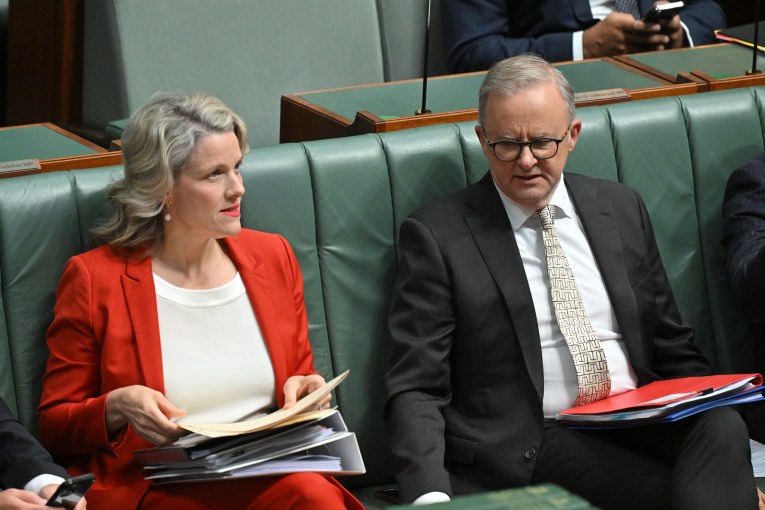She keeps no secrets: Premier adopts ‘revolutionary’ plan to open up her government
Key questions remain unanswered about the implementation of the most ground-breaking reform in Professor Peter Coaldrake’s report on public sector culture, the recommendation that material concerning Cabinet deliberations be released within 30 days of a decision being made.


Premier Annastacia Palaszczuk has been blasted for her housing crisis "thought bubble". (AAP Image/Darren England)
The proposal, which flies in the face of the usual 30-year rule covering Cabinet confidentiality, is likely to prove the most difficult of Prof Coaldrake’s 14 recommendations to adopt.
Premier Annastacia Palaszczuk vowed to embrace the recommendation, which she described as “revolutionary”.
“If you think about this for one moment it means that Cabinet papers which are usually held for 30 years will be released in 30 days,” she said.
She said she had asked Department of the Premier and Cabinet Director-General Rachel Hunter to contact the New Zealand government which has a similar Cabinet disclosure process.
Coaldrake’s report discussed at length the New Zealand policy as an example of how such a reform would work.
Palaszczuk said Justice and Attorney-General department Director-General David Mackie would lead the implementation of the reform.
However, she gave little further detail about how the change would be managed.
“I am very pleased to say we will accept every one of the recommendations,” she said.
“It (Coaldrake’s review) is ground breaking, as I said, it is revolutionary, and government embraces this,” she said.
In his report, Coaldrake said the quick and proactive release of Cabinet documents “would be an important signal, from the very top, of an open and pro-disclosure culture”.
He urged the government to develop a policy “requiring all cabinet submissions, agendas and decision papers (and appendices) to be proactively released and published online within 30 business days of a final decision being taken by Cabinet, subject only to a number of reasonable exceptions which should be outlined in the policy”.
He also warned against an over-reliance on the exemption rule, saying “any tendency to avoid disclosure upon the implementation of a transparency regime, would be a serious indictment on culture”.
There is a risk that exceptions, such as commercial confidentiality, would be excessively relied upon due to a risk of litigation,” he says in his report.
“The Review would envisage that a similar process of due diligence would be undertaken to consider the release of documents as that in New Zealand, which gives genuine consideration to risks of liability arising from publication.”
“Of course, this system can always be abused, but a pattern of avoidance or abuse will ultimately reveal itself: the culture is as important as the policy.”
Coaldrake’s report, handed down on Tuesday, also pointed to a tolerance of bullying within the state’s public service and a reluctance to deviate from the perceived official government line.
Palaszczuk described the review process as a “health check”, adding all governments benefit from scrutiny.
The report also called for the access and influence of lobbyists to be reigned in, including an explicit ban on “dual hatting” by lobbyists during election campaigns.
“To every single member of the business community out there, you do not need to employ a lobbyist to have a meeting with my government,” the premier said.
But on “dual hatting”, the premier said every state and federal political campaign run by the major parities employed a lobbyist.
“That has been the practice for many years, in fact, many decades,” she said.
The Liberal National opposition backed the report’s recommendations, with leader David Crisafulli saying a poor public service culture was having a direct impact on the government’s ability to deliver services.
Katter’s Australia Party also welcomed the report but said it would do little to address concerns, while the Greens said the recommendations were bandaid solutions to a systemic level of interference in the public service.











